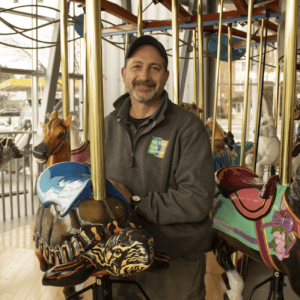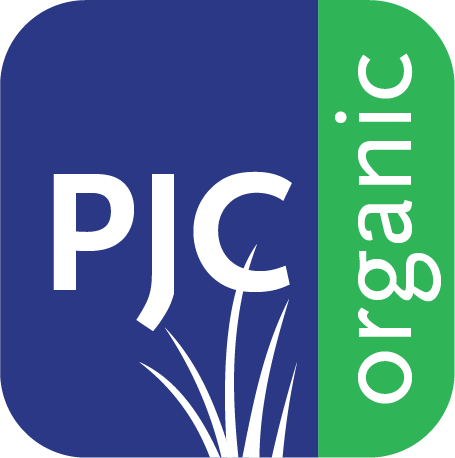 Vincent (Vinny) Piselli is the Senior Land Care Manager at Mill River Park in Stamford, Connecticut, a multimillion-dollar public–private partnership between the City of Stamford and the local community. The park spans approximately 40 acres of green space, with meadows, greenways, outdoor classrooms, a carousel, a fountain/ice rink, and more. Vinny leads a dedicated land care and facilities team responsible for maintaining this unique urban natural resource and recreation space. His work focuses on organic land management practices that protect the Long Island Sound estuary, while also creating inviting spaces for public use.
Vincent (Vinny) Piselli is the Senior Land Care Manager at Mill River Park in Stamford, Connecticut, a multimillion-dollar public–private partnership between the City of Stamford and the local community. The park spans approximately 40 acres of green space, with meadows, greenways, outdoor classrooms, a carousel, a fountain/ice rink, and more. Vinny leads a dedicated land care and facilities team responsible for maintaining this unique urban natural resource and recreation space. His work focuses on organic land management practices that protect the Long Island Sound estuary, while also creating inviting spaces for public use.
Over the winter PJC talked with Vinny to learn more about his role at Mill-River and their Organic Turf Care Program.
How did you get into land care?
Vinny: I was born and raised in southern Connecticut. When you’re my age and Italian, you have a good chance of growing up working not just with your brain, but with your hands too. I’ve been doing land care work since I could walk, and professionally for over 32 years. I spent a lot of time at environmental education centers, which taught me that the work had to be done in the most environmentally responsible way possible. It had to be affordable, effective, simple, and adoptable. A big part of my job isn’t just managing the land; it’s teaching others about it.
We’re responsible for over 30 acres, including nearly three miles of riverbank. The river buffer has to be native, clean, and free of runoff. Public gathering spaces account for about four acres. Mill River Park is managed by a nonprofit environmental organization under a long-term contract with the city, not by city employees. I started here in 2007, and when I came in, all chemical treatments stopped.
What are your Challenges?
A big challenge when I took over was the quality and condition of the soil, especially as it related to compaction. The soil had been moved around and compacted due to construction, and public events. Our public spaces have a lot of use throughout the season. We’re always working to build healthier topsoil and amend it as needed. Before working with PJC, we used liquid applications, but they didn’t deliver enough nutrients to the soil and the applications were hard to work with. The granular products from PJC are much more effective.
Have you seen a difference in the turf since switching to granular?
Absolutely. It’s much better than before, even though our lawns take heavy foot traffic. We raised the mower decks to four inches, which helped too. The ground is softer, the grass is thicker, and people love sitting and lying on it. Plus, the yearly product application calendar you create for us is simple and clear. We pin the plans to the wall, check them off, and they work.
What other amendments do you use?
In addition to your granular amendments, compost and topsoil are staples – this year we’re adding more worms. We realized we had been under-fertilizing and under-seeding. If you want a thicker lawn, add more seed.
What about staffing?
We have five people on the land crew. We outsource mowing, snow removal, and some gardening so my team can focus on higher-level maintenance. It’s like recruiting a sports team; everyone has their role and specialty. We have a very successful volunteer program that helps with labor intensive activities.
Have you considered robotic mowers?
We’ve talked about it. In our location, with so many people in the park, it feels risky. If we were slightly removed from the city, it might work, but only if someone could keep eyes on it.
Did you need special equipment for your organic program?
No — actually, it simplified things. We just needed spreaders, and we added a small Kubota RTV to move materials. The program is easier and more straightforward than when we used chemicals.
Do you promote being an all-natural organic park?
It’s on our website, but our volunteer program is the real outreach. We host over 40 events per year and lead over 2,500 hours of donated labor. Corporate volunteers often help with lawn restoration. We aerate, apply amendments, spread seed and compost, and finish with hay. The products are safe for the community to use, and people learn how to apply the same methods at home – it’s a real teaching opportunity.
How did you find PJC?
At a NOFA trade show years ago. I heard Fred speak, and we connected afterward. Before that, we were piecing things together on our own, which was overwhelming. PJC made it simple.
Closing thoughts
Going organic is the right thing to do, but it’s hard to do alone. PJC made it simple for our staff to succeed and easy to teach the community. I like what PJC does — it fits us very well, and I wish more people knew about it.
Vincent Piselli, Senior Land Care Manager
Mill River Park – Stamford, CT
